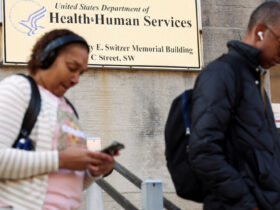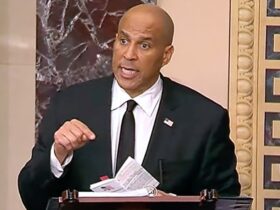Dr. Katrina Armstrong, Columbia University’s interim president, resigned Friday amid the school’s tussle with the Trump administration over federal funding and criticism around its response to pro-Palestinian protests on campus.
Following the announcement, the school’s board appointed Claire Shipman to serve as acting president. Armstrong, the second Columbia leader to step down in less than a year, will return to lead the school’s Irving Medical Center, according to a news release.
“It has been a singular honor to lead Columbia University in this important and challenging time. This is one of the world’s great universities, in its most vital city, and I am proud to have worked with extraordinary faculty, students, and alumni,” Armstrong wrote in a statement. “But my heart is with science, and my passion is with healing. That is where I can best serve this University and our community moving forward.”
The leadership shake-up at the influential school comes after the federal government axed $400 million in grants to Columbia University following an antisemitism investigation into the institution.
“Universities must comply with all federal antidiscrimination laws if they are going to receive federal funding,” Education Secretary Linda McMahon said earlier this month. “For too long, Columbia has abandoned that obligation to Jewish students studying on its campus.”
Just over a week ago, the New York City school announced that it agreed to the administration’s list of demands as it sought to regain access to the $400 million in federal funds. Still, two education groups sued the Trump administration over the funding pause, which caused an uproar in the higher education community.
In its concession, the school said it would ban face masks unless they are utilized for medical or religious reasons. In those cases, students need to present their Columbia ID if asked. The university also stated that it would hire more campus police officers and allow them to arrest students.
Under the new regulations, Columbia will also adopt the updated definition of antisemitism and pick a new senior vice provost to oversee its Center for Palestine Studies and the departments of Middle East, South Asian and African studies, the school said.
McMahon lauded the university for its “appropriate cooperation,” in a joint statement with the Department of Health and Human Services and General Services Administration.
“We look forward to a lasting resolution,” she wrote.
Armstrong has served as the school’s interim president since August last year when she took over for Minouche Shafik, who resigned over her handling of student protests against Israel’s war with Palestinian militant group Hamas in the Gaza Strip.
“Now is not the time for Columbia University to regress as it works to combat the rampant antisemitism plaguing the school. So far Columbia has largely failed to uphold its commitment to Jewish students and faculty — leaving them to face harassment, intimidation, and even assault,” House Education and Workforce Committee Chairman Rep. Tim Walberg (R-Mich.) said in a Friday evening statement, shared on social platform X.
He added that the school’s administrators “must put in the work to combat this evil.”
“Ms. Shipman, while we wish you all good success, we will be watching closely,” Walberg wrote.
The news comes as the Trump administration has targeted those linked to the campus protests at several universities in recent weeks — leading to several arrests, visas being revoked and other legal turmoil.
















Leave a Reply